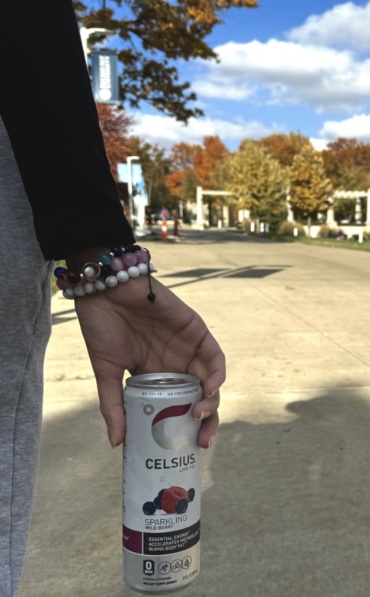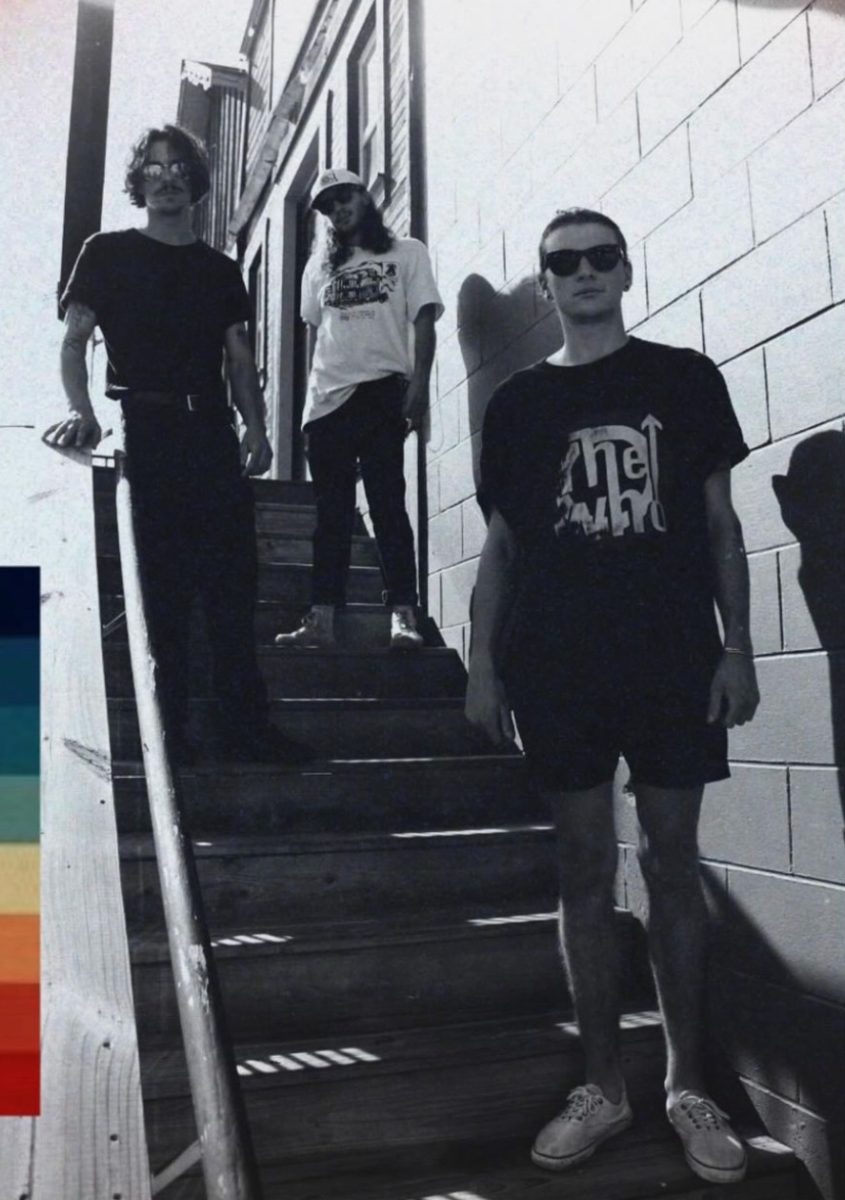There used to be a time when young people would order a Starbucks Frappuccino just for its dramatic and Instagram-worthy profile. But gone are the days of dressed-up milk and maybe a little espresso because an exponential number of college-aged people and others have been swept away by a new phenomenon of health-based energy drinks, such as Celsius.
The Celsius Fitness Drinks are an extremely popular soft drink that claim to provide “essential energy” which has seemingly convinced an entire generation of college students that it will save them after a full night of studying for an 8 a.m. exam. The company seems to understand its newly found popularity among college students, adapting to all the attention by instituting an ambassador program in 2022 that encourages college students to get paid to promote their product on their college campuses. Along with your regular degree, you can also graduate from Celsius University!
Among sleep deprived college students, Celsius drinks have a wide range of flavors that attract a large audience, along with the help of their can’s designs, which from an advertising standpoint make them look clean, refreshing and give the sense that if you drink one, you will be one step closer to being a representation of the trending “wellness” lifestyle.
The main selling points of the brand, which are conveniently located on each can are, again, the “Essential Energy,” as well as how it “Accelerates Metabolism,” and “Burns Body Fat.” Now, I’m no nutritionist myself, but I am pretty sure that a human’s metabolism cannot be immediately accelerated by drinking one can of natural flavors/green tea extracts/carbonated water that has 200 mg of caffeine. This has been one of the main criticisms of the popular drink, with some making the argument that it is false advertising or misleading to suggest that the drink can automatically make your metabolism accelerate, and ipso facto, possibly help consumers lose weight.
On each can, the Celsius label explains that their product “turns on thermogenesis, a process that boosts your body’s metabolic rate”. While this has been proven to be true by university studies listed on the Celsius website, there seems to be a discourse surrounding how beneficial these advertised traits can be, and if there are any side effects to consuming Celsius that are not receiving as much attention as their variety of flavors and pretty packaging are. It is also important to mention that the above studies revolved around the product’s benefits shown after some form of exercise, as the labels and website advertise their product’s intention to be.
The true topic of my interest regarding one of the most popular sources of caffeine in the market today is the cultural effects it has on college campuses, and specifically, college athletes. After all, the company markets their beverages to people who plan on physical activity, and with Massman Hall selling Celsius in their vending machines, I wanted to find a local source to provide some relative insight to its popularity and effectiveness.
Colton Ellingsworth, a freshman at Rockhurst who runs for the university’s cross country and track & field teams offers an athlete’s perspective on how Celsius effects levels of energy in relation to exercise.
“Drinking a Celsius right before an exercise definitely has its benefits and drawbacks. In my own experience taking it before a lift helps me feel more stimulated and focused during exercises … Often, the energy drink only affects me for around two hours. Then I experience the ‘crash’ or sense of drainage in my energy levels.”
While Celsius certainly has the appeal of being a pleasant alternative to the (in my opinion battery-acid-adjacent) ever-popular Monster Energy and others alike, it may not be the most effective way to energize players into being at peak-performance.
To get a professional opinion on the merits of consuming Celsius and energy drinks in general, I met with Michael Calvin, Rockhurst’s assistant athletic director of student wellness and sports performance and head athletic trainer.
When asked how often he encounters Celsius specifically in his work here at Rockhurst, Calvin replied: “I do see it pretty much daily with athletes that come into the training room. We probably see 20% of athletes with it on a daily basis, at least one every day.”
In terms of why it appeals to athletes as well as most college students, Calvin offered the main appeal is simply caffeine content: “I would say the biggest hit is the caffeine, that’s why people stick to it. The caffeine does aid in performance, that’s why the NCAA regulates how much caffeine student athletes can have in their system.”
With no sugar, preservatives, high fructose corn syrup, artificial colors, and being non-GMO, Celsius Fitness Drinks certainly seems like a healthier option with the same caffeine content as other products. However, Calvin brings up the importance of nutritional awareness.
“I think everyone should know what they’re consuming and what the nutrition label means. Just because they say it’s natural doesn’t mean it’s healthier, maybe ‘healthier’ just depends on what natural things they’re putting in there,” Calvin said.
It is easy to understand why caffeine is so appealing to people that not only go to school full-time, but also participate in multiple extracurricular activities like sports. Not only does Celsius allow their consumers to get that energy boost they need for whatever they are doing for the day, but their brand is reflective of the time as well. They offer a “cleaner” alternative to other energy drinks that have not necessarily catered to all types of people.
With the nature of social trends today, it is hard to predict whether Celsius will experience the same longevity as older brands, especially with competition that caters to certain “aesthetics” of people like Alani Nu Energy. Maybe it will turn out to be just another fad like the nostalgic Frappuccino, but considering the current popularity of the product and how often it is seen in college classrooms, its cultural significance is one to mention regarding the habits and well-being of college students today.








